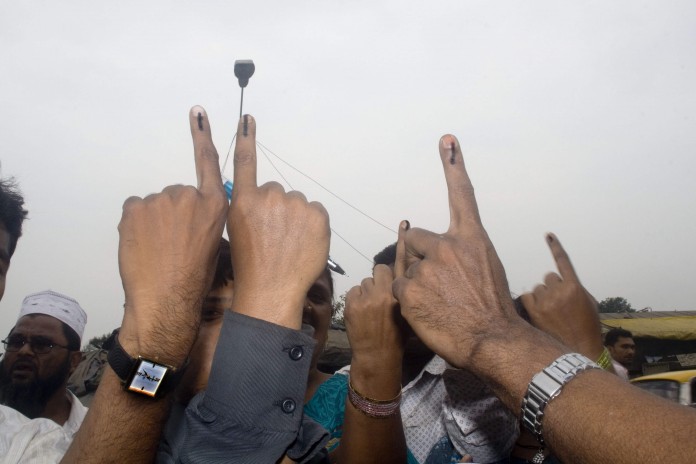Amidst the demonetization in India, the Election Commission has expressed concerns about the usage of indelible ink by banks in exchange of the currency notes. The states like Madhya Pradesh, Arunachal Pradesh and West Bengal are going to go for assembly polls on November 19, 2016. A letter has been written by the Election Commission to the Finance Ministry.
The letter says, “It is informed that bye-elections from some parliamentary and Assembly constituencies are currently in progress, poll for which is scheduled to be taken on 19.11.2016. As per the provisions of Rule 49K of the Conduct of Elections Rules, 1961, the left forefinger of electors is required to be marked with indelible ink at the polling stations before the elector is allowed to vote.” The states of Punjab and Uttar Pradesh are due to undergo elections in 2017.
The election commission mentioned about the Sub-rule (4) of the said Rule 49K that states that when the elector does not have a forefinger on his left hand the ink has to be marked on any finger on the left hand. If the elector does not have any finger on the left hand then the ink has to be marked on the right forefinger. The EC added that considering the upcoming elections it is requested that the provisions of rules about the application of indelible ink at elections and commissions instructions in this regard must be duly taken in to consideration. The letter has been written so that the process of demonetisation does not affect the election process in any manner.
The Indian government reduced the over-the-counter exchange of notes from 4,500 to 2,000 and that one person can exchange notes only once till December 30, 2016. The new measure has been taken to ensure that the same people do not queue up repeatedly and that the lines in the bank get a little shorter.
Photo Credits:business-standard







